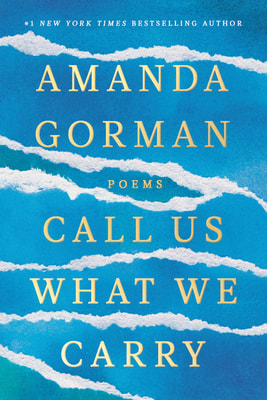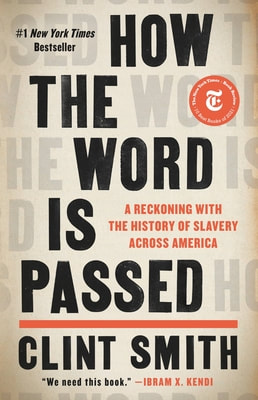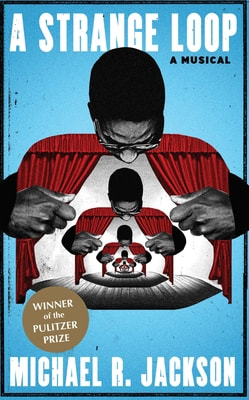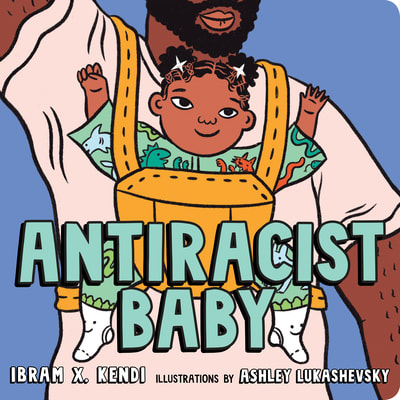|
Once again it is time for our annual diversity audit. Why? Because we believe that we are what we read; and also because we believe that a great way to expand our horizons is to read books written by or about people who have lived radically different lives from ours. So each year, we use Black History Month to explore how diversely we ourselves have read during the previous 12 months. So one quick number from this year's audit -- overall in 2021, we reviewed 78 books in total. And, a second stat, just over half, (51%) of the authors we reviewed were written by authors of color (up from 47% in 2020, 28% in 2019, and 36% in 2018). The other thing we use Black History Month to do is feature amazing books by superb Black authors. So now, some thoughts about great books, followed by numbers from this latest audit for those of you who like data and accountability.  Call Us What We Carry by Amanda Gorman (2021). The youngest presidential inaugural poet in US history has penned a collection of poems that delve into the collective trauma of Covid-19 and the perils of erasure. Combining primary source materials such as letters by survivors of the Spanish Flu and her own original work, Ms. Gorman offers a path forward. A path that includes looking both at the lessons of our past as well as our own stories. We found this a perfect volume to pick up and read for a bit, then put aside for awhile, and then return to it, and continue the journey these poems offer - one that is playful, pithy, memorable, humorous, calm, and heartbreaking. Gorman somehow packs all into this one volume. ~ Lisa Cadow and Lisa Christie  How the Word is Passed by Clint Smith (2021). This history was named a Best Book of 2021 by The New York Times, The Washington Post, The Boston Globe, The Economist, Smithsonian, Esquire, Entropy, The Christian Science Monitor, WBEZ's Nerdette Podcast, TeenVogue, GoodReads, SheReads, BookPage, Publishers Weekly, Kirkus, Fathom Magazine, the New York Public Library, and the Chicago Public Library. It was also longlisted for the National Book Award, and a finalist for the National Book Critics Circle Award. In it, Smith, a staff writer at The Atlantic, examines how slavery has been central in shaping our nation’s collective history and ourselves. In doing so, he travels, among other places, from New Orleans, a port for much of the slave trade, to Monticello where park rangers talk about how the narrative they present to visitors has changed over the decades, to Manhattan where the slave trade built wealth. Ultimately this book offers hope by creating a new understanding of the role that personal stories and history can play in making sense of our country and the people who live here and lead it. ~ Lisa Christie  A Strange Loop: A musical by Michael R Jackson (2020). We don't often review plays and yet I found myself reading A Strange Loop - Mr. Jackson's professional debut, which was awarded the Pulitzer Prize for Drama in 2020. The main character - Usher - is a Black, queer writer, working a day job as an usher on Broadway while writing his own story and an original musical about a Black, queer writer, working a day job on Broadway while writing his original musical. I think you see the loop now. This contemporary musical follows an artist trying to overcome a host of obstacles - not the least of which are the punishing thoughts in his own head. Read it for the challenge reading drama provides. Read it for insight into the lives of queer Black men in the world. Read it because it will have you thinking about what all the voices in your own head would be saying to you on stage in your brain's play. ~ Lisa Christie  Antiracist Baby by Ibram X. Kendi and illustrated by Ashley Lukashevsky (2020). This book exists because sometimes you need a board book to start difficult conversations. With this picture book, Mr. Kendi gives excellent tips for all of us to use as we try to be antiracist humans in the world. We are so glad they created something for infants and children and the adults who love them. ~ Lisa Cadow and Lisa Christie And now the audit numbers. Although we know some of the authors we highlighted identify as members of the LGBTQ+ community, we do not know the sexual orientations for all the authors we review, and thus, we do not audit by sexual orientation. We also do not have access to economic class statistics. Thus, our diversity audit focuses on identified gender and race/ethnicity.
We read and reviewed fewer books this past year than in any other year - 78 compared to 153 books in 2020, 94 books in 2019, 202 books in 2018, and 164 in 2017. We may need to fix that. (Note: For these audits, we do not include posts by guest reviewers or events such as Pages in the Pub because these books are selected by others.) Over half (62%) of the books we reviewed were written by women (65% in 2020; 57% in 2019). Staying with stats regarding women authors we reviewed, almost a quarter (23%) of all authors we featured were white women from the USA (up from 21% in 2020 and 2019, down from 32% in 2018), and 8% of all authors we read were white women from outside the USA (down from 14% in 2020 and 20% in 2019 and same as in 2018). Latina authors were 5% of our authors in 2021; down from 11% in 2020 and up from 2% in 2019 and 4% in 2018. Like last year, only 1% of featured authors were Asian women (down from 4% in 2019 and 6% in 2018). We featured more Black women in 2021 - 18% (up from 2020's 14%, 10% in 2019, and 12% in 2018). We also featured more Arab American women (4%) and Native American women (3%), both up from zero in previous years. As for the authors identifying as men, white men from the USA were 14% (down from 17% in 2020 and 23% in 2019) of the authors we featured. Fewer (4%) of the authors we featured were white men from outside of the USA (down from 13% in 2020 and 8% in 2019). We featured more Black male authors (13%) this past year, compared to 5% in 2020 and 7% in 2019. Very few authors we featured were Asian men (1%) or Latinos (3% which was up from 1% in 2020). None of the authors we featured identified as of Middle Eastern descent (down from 2% in 2019). We increased the number of Native American male authors we featured (4% compared to 2% in 2020 an 0% in 2019). Adding men and women together, 51% of the authors we reviewed were persons of color (up from 47% in 2020, 28% in 2019, and 36% in 2018). Within the white authors there was a decrease in geographic diversity, 18% (down from 21% in 2020 and 33% in 2019, and up from 16% in 2018) of the white authors we featured were from outside the USA. The largest group of authors of color were Black (31%), up from 24% in 2020, 15% in 2019 and 13% in 2018. To sum, we improved the percentage of authors of color we reviewed: 51% of all authors reviewed in 2021 were authors of color (47% in 2020, 28% in 2019, 36% in 2018, 32% in 2017, 26% in 2016, 23% in 2015). And, once again, we vow to continue to review a diverse range of authors year after year.
0 Comments
Your comment will be posted after it is approved.
Leave a Reply. |
Archives
March 2023
Search |
Book Reviews |
Meet the Author |
EVENTS |
ABOUT US |
SEARCH |
© COPYRIGHT 2019. ALL RIGHTS RESERVED.
|


 RSS Feed
RSS Feed